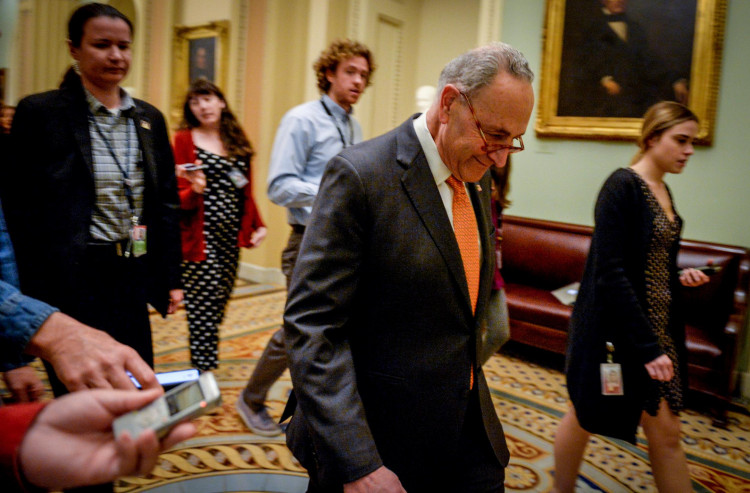The much-hyped trillion-dollar coronavirus stimulus package that would help offset its devastating economic effects hit a roadblock Sunday night as Democrats blocked the measure from a procedural vote.
After days of intensive discussions, talks collapsed between Capitol Hill leaders and the White House over a "Phase 3" stimulus package designed to quell the current global health problem, leading to a failed cloture vote aimed at pushing the bill forward.
Democrats said the Republican bill failed to properly protect millions of American employees during the pandemic, or to shore up the country's chronically under-equipped health care infrastructure.
They argued that the new aid package benefited businesses over employees and providers of health care, bringing Republicans back to the negotiating table.
The emergency bill, which is projected to be one of America's biggest and most costly relief packages, will provide much needed assistance to American households, small companies, and industries who have been hardest hit by the virus.
The bill proposed a funding of approximately $1.7 trillion or more to soften the blow to American families and thousands of shuttered or struggling businesses.
The procedural vote was deadlocked at 47, with five non-chamber Republicans including Sen. Rand Paul, who declared Sunday that he had the virus. The count fell well short of the required 60 votes to get the nod of the Senate.
The plan - as it currently stands - is to allocate $250 billion that would go directly to the Americans. Many individuals will receive $1,200 direct deposits for each child, plus an additional $500; $3,000 will go to a family with four members. The money starts phasing out for Americans earning more than $75,000 per annum.
Although the proposal had been disrupted by infighting, lawmakers persisted in closed-door talks aiming to get the program back on track. Top Senate Democrat Chuck Schumer and Treasury Secretary Steven Mnuchin "are working late into the night, and they have had yet another fruitful meeting," a spokesman for Schumer said.
The plan also allocates $350 billion to small companies to help retain salaried jobs. Mnuchin said that he would "forgive" those small business retention loans. The plan gives qualifying employees 39 weeks of jobless benefits, retroactive to January 27.
Together, the drastic steps were one of the most dramatic government relief attempts outside of wartime, with millions of people being forced out of jobs, thousands of companies being shut down, traveling severely curtailed, and little guarantee as to when things would normalize.






